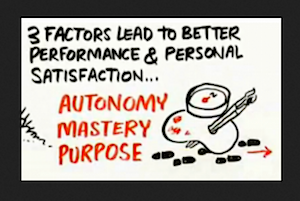5 Promises Instructional Coaches Need to Keep
Are you an instructional coach? Are you effective? Then chances are you are wearing rose-colored glasses and you are happy in your work.
Instructional coaches are tasked with being change-makers, and making change requires a persistent positive attitude. Our job is to help individual teachers be better and stronger for students. That often means that we get bogged down in the many things that may need improvement. Unless we guard against it, negativity can set it.
The negative vibe is never far away these days. The education landscape has become incredibly politically and emotionally charged. It’s challenging to shut out the din of a thousand competing voices complaining about all that is wrong in teaching and learning.

Our pride in what we do
I got some extra coaching energy the other day as I sat in on teacher interviews and listened to candidates talk about teaching and learning. They didn’t dwell on politics, or mandates, or mistrust. Instead of lingering negativity, I heard in their voices both professional pride and an eagerness to to help all children learn more.
Take a minute to read the words of the candidates. I almost guarantee they’ll make you proud to be an educator.
“If they don’t love a subject or strategy, I always tell myself, they don’t love it yet, but I’ll get them there!”
“Pay attention. Pay attention to what they need and how they need it.”
“Collaborate. Communicate. Learn from each other.”
“Success first. When learners succeed they are prone to more success.”
“Figure out where they are and where they need to go and then help them get there!”
Amazing, right?! Later, as I reflected on their words, I thought of five things I’ve promised myself never to forget as I strive every day to be an effective instructional coach.
1. Growth mindset applies to teachers too.
Every single teacher has the potential to grow, learn, and achieve at high levels. All teachers want to be successful, and guess what? With some work, patience, and effective coaching, most teachers (if not all) can be.
Spend some time with the research of psychologist Carol Dweck. Dweck teaches us that our brains are malleable and that humans can actually get smarter. She also reminds us that failure is part of the learning process and is often an essential step in getting better at what we do. We have been applying the growth-mindset theory to our work with children for some years now. It’s time to bring this positive way of thinking to our work with teachers too.
► Mindset: The New Psychology of Success (Dweck’s highly readable book)
► Carol Dweck Video on Mindset (a must watch!)
2. It’s NOT an “us vs. them” thing. Ever.
I recently read a great book for middle grade students, Pax by Sara Pennypacker. In it Pennypacker writes about the Buddhist principle of two, but not two. She uses the concept to help two sad and somewhat lonely characters to see themselves as connected to the world.
It resonated with me on many levels, but as a lifelong edu-dork who spends huge chunks of time thinking about teaching and learning, I felt it speak to me in particular about my role as an instructional coach.
Coaches cannot allow an “us vs. them” mentality into our thoughts or conversations about the educators we coach. It’s our job to help teachers create a more ambitious vision of what they can accomplish, in turn raising their achievement.
We do sometimes have to insist that teachers make changes, but we must do it in a way that shows we support, value and believe in them. We must be thoughtful rather than frustrated or angry in the face of teacher resistance. In other words, don’t ever misplace your rose-colored glasses. You need them. The teachers you serve (and through them, the students you serve) need you to wear them.
► See Grant Wiggins‘ excellent advice on facing resistance.
► Stephanie Laird gives equally valuable advice at the Your Instructional Coach.
3. Motivation is key, but it has to be real.
Motivation is not something we give to teachers; it is something we cultivate by helping teachers see their own progress and success.

► RSA Animate Video on Drive by Daniel Pink (15 million views!)
► Drive: The Surprising Truth About What Motivates Us (Pink’s book)
4. Classroom management is absolutely foundational.
Excellent teachers know how to run a classroom, how to manage children, how to differentiate instructional experiences, and how to proactively ward off poor choices. Building relationships with students is key to effective management. Differentiated instruction is too.

► Cooperative Discipline by Linda Albert, the best book ever about classroom management.
► Carol Tomlinson’s Site Tomlinson is a professional leader in differentiated instruction.
► Responsive Classroom strategies can help teachers build relationships.
► 10 Ways to Sabotage Your Classroom Management from Jennifer Gonzalez is a great conversation starter.
5. NEVER stop learning and model continuous learning for others.
We are servant leaders. Instructional coaches cannot allow ourselves to put on know-it-all airs. There’s no room for ego in coaching.

Keep learning in low stress ways and show teachers how to do the same. Effective coaches are reflective learners. Reflection leads to questions. Do not be afraid to ask them!
► If You Need it, Get It! Do It Yourself PD offers oodles of links to cheap or free learning opportunities
► Coaching experts, you know, the sports kind, have much to teach.
► Read the commentaries of expert coaches like Elena Aguilar.
Teachers are amazing!
As we go about our work as instructional coaches, we must keep these three words foremost in our minds. And if you don’t quite believe it, fake it ’til you make it.

These five promises have served me well in my work coaching and collaborating with colleagues. As I delve deeper into the school year, I will continue to polish my rose-colored glasses and wear them with pride. I hope you’ll put yours on too!
__________
Rita Platt (@ritaplatt) is a National Board Certified Teacher. Her experience includes teaching learners at all levels from kindergarten to graduate student. She currently is a Library Media Specialist for the St. Croix Falls SD in Wisconsin, teaches graduate courses for the Professional Development Institute, consults with local school districts, and writes for We Teach We Learn.





































Thank you for sharing this with me, Rita. I especially appreciated, “Never stop learning . . .” I am disappointed that WI has moved to life licenses. I know some teachers who are so excited NOT to have to take another class or PD. That’s not who we are!